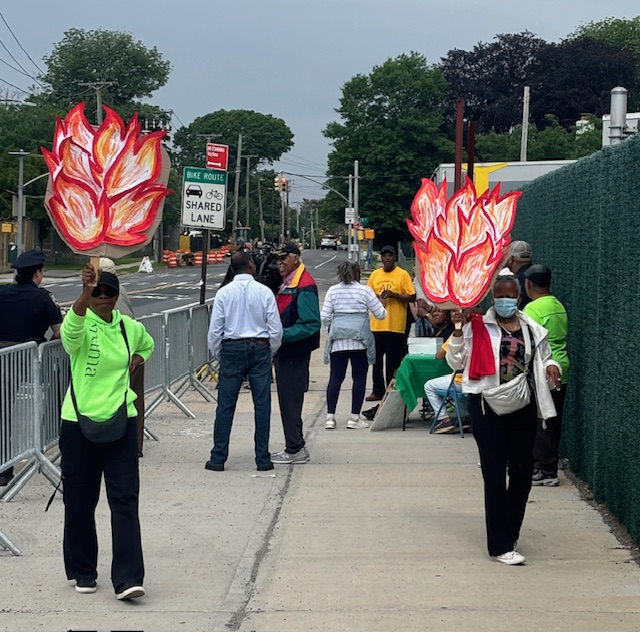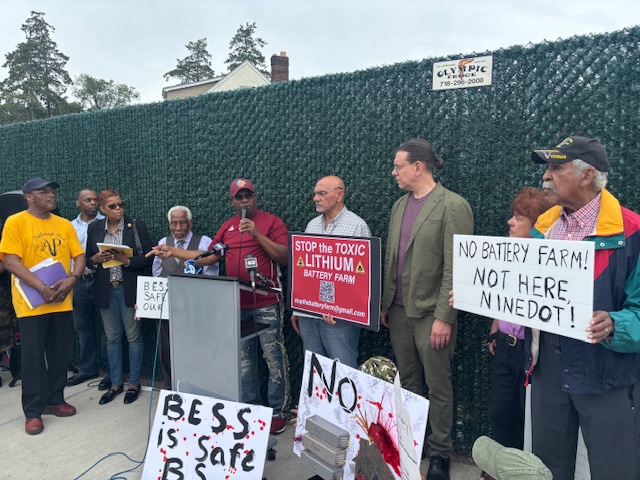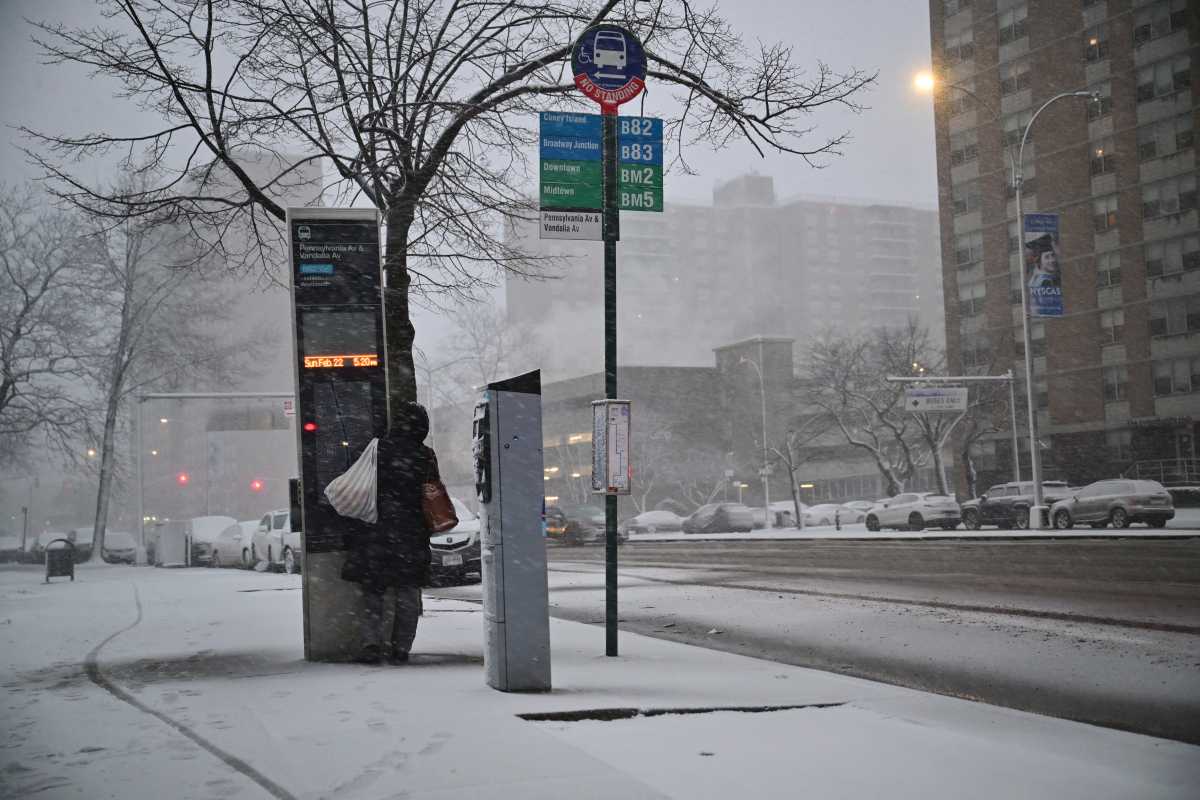Anger, fear and determination filled the air on Saturday as dozens of residents gathered at the corner of 180th Street and Linden Boulevard in St. Albans to protest a planned lithium-ion battery energy storage facility (BESS) just feet from homes, a welding shop and the St. Albans VA Hospital.
Chanting “We say no!” and waving handmade signs, neighbors denounced Brooklyn-based NineDot Energy’s plan to construct a 4.9-megawatt battery farm on the site of a former gas station, without community input or oversight. As many opponents note, an all-too-convenient tactic that raises suspicions of calculated regulatory evasion. Projects exceeding the 5 MW mark may trigger stricter permitting processes, environmental reviews and grid interconnection requirements.
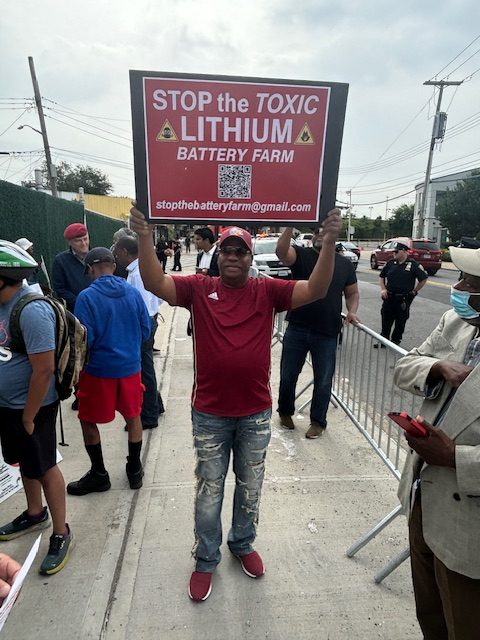
The protest was organized by the Addisleigh Park Civic Association and drew broad support from local civic groups, environmental advocates and concerned homeowners. Former Assembly Member Bill Scarborough kicked off the event. “They come into our community, not as partners, not as good neighbors, but just run roughshod—because they feel like they can get away with it,” Scarborough said.
“This is a disaster waiting to happen,” said longtime resident Daryl Wilson. “They say the underground tanks from the old gas station were removed, but we’ve seen no proof. No transparency, no engagement—just quiet backroom deals.”
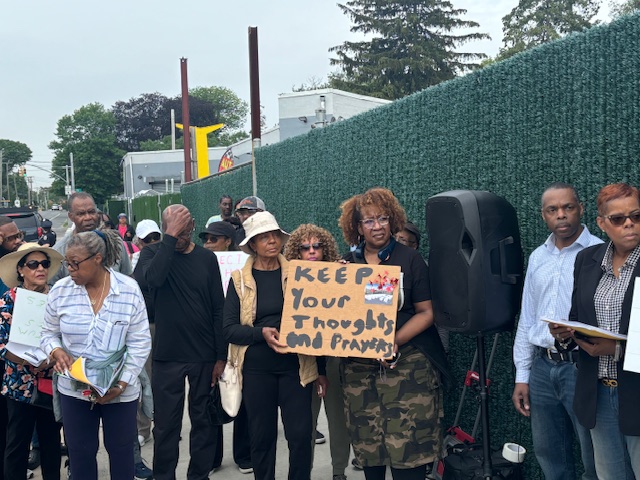
‘No More Dumping Grounds’
Marine Park, Brooklyn resident Claudia Greco, whose home backs up to another NineDot battery site already under construction, offered a warning from personal experience: “I am your future. There’s only a thin plastic fence separating my house from this firetrap. It’s already happening in my neighborhood—and if we don’t stop this, it’s coming to yours.”
Greco continued, “We’re talking about chemicals worse than what came out of the World Trade Center site. These are forever chemicals. If a fire happens, we’ll be left with a toxic wasteland. You won’t be able to sell your home. You won’t be able to breathe.”
The crowd repeatedly invoked the proximity of the proposed battery site to a welding shop, a funeral home, and the nearby VA hospital. “This is environmental injustice,” said Amit Singh, a local environmental advocate. “And it’s happening disproportionately in working-class Black and Brown communities.”
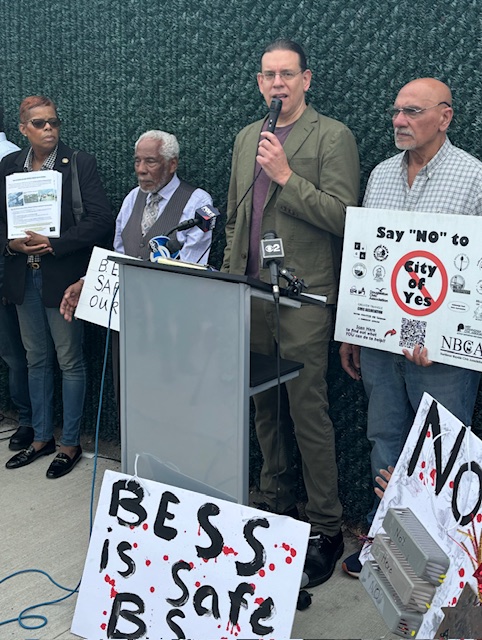
Lawsuit Targets Mayor’s Rezoning Plan
Urban planning expert Paul Graziano, who also addressed the crowd, is leading a legal challenge against the City’s zoning overhaul. His lawsuit—filed in Staten Island Supreme Court—specifically targets Mayor Eric Adams’ controversial “City of Yes for Housing Opportunity” proposal.
“This is a wholesale giveaway to developers,” Graziano declared. “And the public never had a real chance to weigh in.”
The suit alleges that the Adams administration illegally segmented the rezoning process to avoid a full environmental review and failed to adequately assess the cumulative impact on low-density neighborhoods. Graziano is urging concerned New Yorkers to pack the courtroom on Tuesday, July 8, at the Staten Island Supreme Court, calling it a critical moment in the fight to preserve community control.
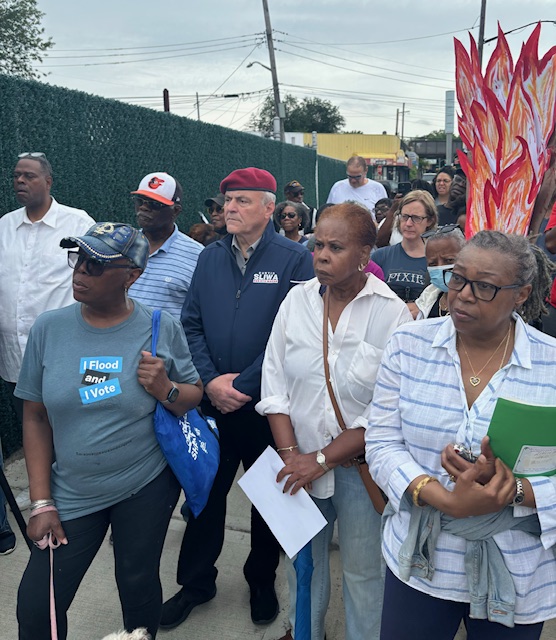
More Than Just St. Albans
Scarborough, Community Board 12 leaders, and other civic leaders echoed calls to resist NineDot’s growing footprint in Southeast Queens. “They’re putting these facilities in our neighborhoods because they think we won’t fight back,” said another resident. “But we’re fighting—and we’re not going away.”
Curtis Sliwa, Guardian Angels founder and mayoral hopeful, a frequent presence at lithium-ion battery site protests, made an appearance to speak out against the project and stand with residents. “They won’t put these in Park Avenue or Billionaires’ Row,” he said. “But they’ll drop them on St. Albans and Marine Park. Why? Because they think they can.”
The proposed facility is just one of at least four planned battery storage sites in Southeast Queens alone. Others are already under construction in Brooklyn, the Bronx, and Staten Island. Many are being built within feet of homes, using loopholes like “as-of-right” zoning and corporate shell structures to avoid accountability.
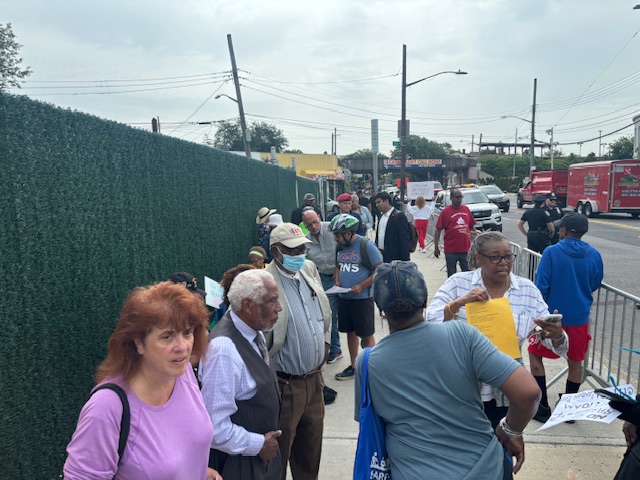
A Unified Front, A Growing Movement
Residents made clear they are not opposed to renewable energy, but demanded that high-risk infrastructure be placed in industrial zones, not family neighborhoods.
“We are not against clean energy,” said Amit. “We’re against sacrificing our health and homes for it.”
Supporters are also being asked to contribute to the community’s legal fund. Donations can be made via email at info@addisleighparkcivic.org or by mail to APCO, P.O. Box 120-023, St. Albans, NY 11412 (note: “for BESS lawsuit”).
As the crowd dispersed under grey skies, their voices still echoed off the buildings: “We say no! We say no! We say no!” And with court dates approaching and more sites in development, the battle over battery farms in New York’s residential neighborhoods is far from over.
